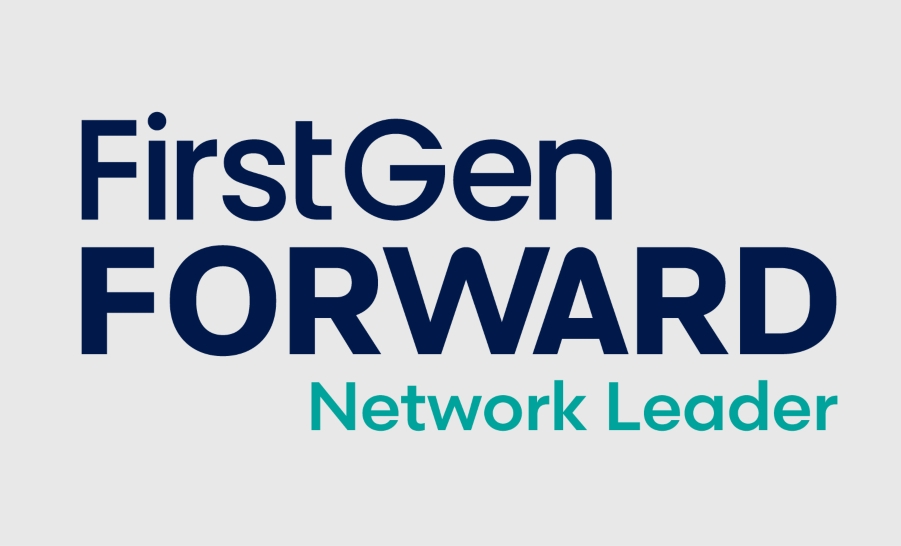Into the Unknown - Survey Style
Alyssa Hensel and Kera Perron, Berklee / FirstGen Forward / October 23, 2023

Prior to spring 2023, Berklee (Berklee College of Music and Boston Conservatory at Berklee) had yet to implement a means of identifying first-generation college students. Partnering with our Admissions team, Student Success Programming took application data about parent or guardian level of education and added a student cohort code to identify potential first-generation students for our new first-generation student support program, RISE (Reach for Independence through Support and Engagement). In the future, we plan to use a second student cohort code to indicate full participation in the program. This will allow us to see how the program compares against the student body as a whole and against peers who hold the same identity but choose to not participate in the support program.
We learned that approximately 15 percent of our student body between both Berklee College of Music and Boston Conservatory at Berklee was comprised of first-generation college students. Partnering with Institutional Research and Assessment, we used the cohort code to extract data from large-scale surveys such as our graduation survey, National Survey of Student Engagement, Ruffalo Noel Levitz Student Satisfaction Inventory, etc., to provide our first insight into the first-generation experience of our students.
To build out the RISE program further, we knew that diving into the unknown—by gathering our first survey data designed for our institution’s unique traits—would help us to build a strong program rooted in meeting the students where they are. We targeted students who were at a junior level or higher to speak about their collegiate experience.
Key Points from Our Survey:
-
We invited 367 students to complete a survey; 34 percent of our students submitted results
-
94 percent of respondents felt their identity matched our institutions’ definition of “first-generation.” Berklee defines first-generation as “any student whose parent(s) or guardian(s) did not complete a bachelor’s degree, and/or the student has no current contact with their parent(s) or guardian(s), regardless of degree completion.
-
66 percent of respondents believed their identity as first-generation impacted their experience on campus, yet the majority agreed or strongly agreed they felt comfortable advocating for themselves or seeking help from faculty and staff.
-
67 percent of respondents worked either off-campus or both on- and off-campus jobs, with many saying pay was the reason to work off-campus.
-
44 percent of respondents have thought about taking a gap due to their financial situation.
-
Half of the respondents wanted to participate in our Valencia Study Abroad program.
-
86 percent of respondents were interested in an internship, but only 12 percent had applied and accepted an internship.
-
The majority of respondents said they felt confident or very confident in time management, prioritizing effectively, and organization. However, they counter this by saying an area for improvement is saying “no” when committed to “a lot.”
-
Respondents most frequently used faculty office hours and were less likely to use tutoring, coaching, or library services.
While we cared deeply about these key takeaways, we also wanted this work to have a grounding in storytelling. Looking at the research of another New England institution with a trade component (Costello, M., Ballin, A., Diamon, M. R., & Gao, L., 2018), our department wanted to emphasize the importance of mattering. We ask three open-ended questions at the end of the survey:
Tell us about a time that you felt like you mattered at school.
They expressed so much joy, pride, and a sense of accomplishment. They shared stories of mentors and professors seeing them as individuals. Given that our institution has a trade skill component to the curriculum, they spoke highly of when their work was recognized either through verbal and written praise or financial backing like scholarships.
Tell us about a time that you felt like you didn’t matter at school.
They shared stories of struggles while navigating the institutional resources, and finding community when around those with different backgrounds, especially when it comes to finances.
Is there any part of your experience that you wish you had more support with?
The most common answer was understanding their financial situation and some were able to dive deeper into the mental health aspects of finances.
Based on the detailed descriptions we received from these final survey questions, RISE’s important foundational work begins to take root. Our partnership with our campus counterparts cannot be understated, and we’re already mapping out what the future could entail. These last six months held many stepping-stones to the ability to identify our first-generation students and their lived experiences, which is an invaluable part of how Student Success Programming develops RISE over this and future academic years.
Citations:
Costello, M., Ballin, A., Diamon, M. R., & Gao, L. (2018). First generation college students and non-first-generation college students: Perceptions of belonging. Journal of Nursing Education and Practice, 8(No 12), 58–65. https://doi.org/https://www.sciedupress.com/journal/index.php/jnep/article/view/13574/8646


